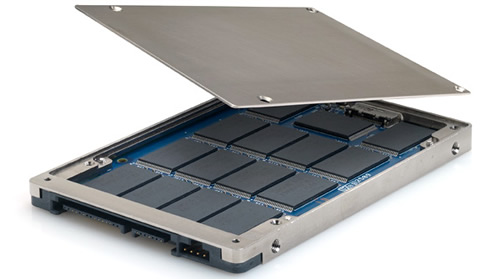It's been a long time coming but today Seagate finally entered the flash storage market with the launch of its Pulsar solid-state drive. As expected, the company is initially targeting the enterprise market, where it is already a big player and users are more likely to pay the price premium for higher speeds and longevity.
Available in capacities ranging up to 200GB, the new Pulsar series uses single level cell (SLC) flash memory and fits into a standard 2.5-inch drive bay. Using a 3Gbit/s SATA II interface the drives can reach peak sequential speeds of 240MB/s when reading and 220MB/s while writing -- sustained write speeds are much lower though: 160MB/s for the 200GB model, 80MB/s for the 100GB and only 40MB/s with the 50GB version.

Seagate also quotes peak read and write IOPS with 4KB blocks at 30,000 and 25,000, respectively, as well as enterprise-friendly features like data protection in the event of power loss, 0.44% annualized failure rates, and a five-year limited warranty coverage. However, the company hasn't disclosed the sourcing of the NAND chips used or the sourcing of any aspect of the controller technology.
Though they are formally announcing their first SSDs just now, Seagate says it began shipping Pulsar drives for revenue to select OEMs back in September, so the drives might be available from some server vendors already. No word on when or if they expect to target mainstream users with an MLC-based line, but at least in the short to medium term it doesn't seem that way. The company recently said it expects SSDs to make up less than one tenth of the market even three years from now, with most mobile PCs transitioning to 7200 RPM hard drives.
https://www.techspot.com/news/37249-seagate-enters-solid-state-drive-market-with-pulsar.html